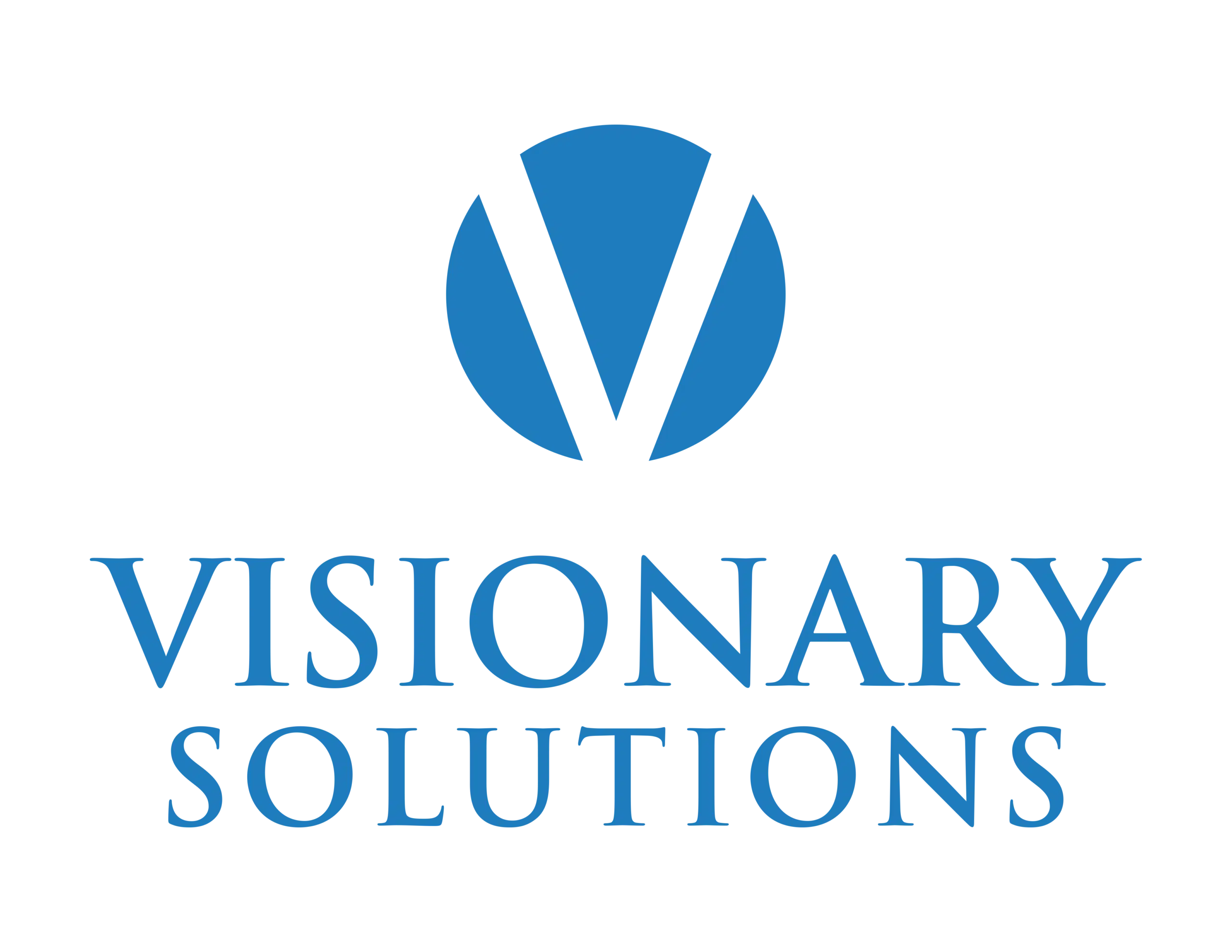The ability to manage and streamline booking is vital for businesses across various industries. However, keeping up with this demand can be a daunting task, especially when you factor in the need for excellent customer service.
This is where Answering Service Appointment Scheduling steps in as an innovative solution.
This modern and efficient approach aims to tackle the challenges of appointment management with precision. It has been transforming the way companies operate, helping them enhance their services while ensuring a smooth and seamless process.
The impact is evident in the impressive stats and figures, which underscore how it’s revolutionizing its fields, making it a game-changer for those aiming for efficient operations and satisfied clients.
What is Answering Service Appointment Scheduling?
Answering service appointment scheduling is a critical component of modern businesses that plays a pivotal role in enhancing customer service and operational efficiency.
This involves outsourcing the activity, as well as management tasks to a specialized external provider.
Businesses across various industries leverage this solution to streamline their operations and offer customers a seamless experience.
At its core, it revolves around booking, confirming, and managing appointments on behalf of businesses. It often includes a range of tasks, such as setting meetings, consultations, reservations, and service appointments.
One of its primary functions is to ensure that clients can easily set up appointments without the hassle of navigating complex automated systems or waiting on hold for extended periods.
Instead, they can interact with live agents who can efficiently do that based on their preferences and availability.
This service is especially advantageous for companies that experience a high volume of appointment requests, such as medical practices, law firms, salons, and service providers.
This way, they can offload the administrative burden and free up their in-house staff to focus on core missions.
The benefits extend beyond mere convenience. It leads to enhanced customer satisfaction by offering a more personal touch in the process.
Skilled agents can provide valuable information, answer queries, and ensure the accuracy of appointment details, which contributes to a positive experience.
Moreover, its flexibility and scalability allow professionals to adapt to fluctuating appointment volumes.
Whether it’s a sudden surge in demand or a seasonal fluctuation, these providers can efficiently manage to ensure they don’t miss opportunities due to overloaded phone lines or overworked staff.
Answering Service Appointment Scheduling: How It Works?
Scheduling through appointment making services is a seamless process that combines technology with human intervention to ensure efficient and reliable service.
This section outlines the step-by-step process and explains how these services can integrate with existing systems and processes for easy adoption.
1. Initial Contact
- A potential client or patient initiates contact with the business or practice via phone, website, or email, seeking to schedule an appointment.
- Calls are often routed to a dedicated team of live agents who are available 24/7.
2. Information Gathering
- Live agents collect essential information, including the individual’s name, contact details, preferred appointment date and time, and the reason for the appointment.
- Detailed queries may be addressed to ensure the appointment meets the client’s specific needs.
3. Scheduling
- The answering service’s scheduling software interfaces with the client’s appointment system or calendar.
- Agents access real-time availability to identify open slots that align with the client’s preferences.
4. Confirmation and Reminders
- The system sends immediate appointment confirmations to the client via SMS, email, or phone, reducing the chances of no-shows.
- Automated reminders are also scheduled, ensuring that clients are notified of their upcoming appointments.
5. Handling Changes and Cancellations
- In case a client needs to reschedule or cancel an appointment, they can contact the answering service.
- Live agents manage these requests, update the appointment system, and offer alternative slots.
6. Routing and Documentation
- If the appointment requires special instructions or routing (e.g., a specific department or practitioner), this is conveyed to the client.
- Comprehensive documentation of the scheduling process is maintained, aiding in record-keeping and future reference.
7. Technology and Human Intervention
This process smoothly combines advanced scheduling software with human agents.
The technology handles the logistics, accessing real-time availability, generating confirmations and reminders, and integrating with the client’s scheduling system.
Human agents step in to personalize this interaction, ensuring that specific requirements are met, and handling changes, cancellations, and special routing requests.
This hybrid approach provides the best of both worlds: the efficiency of technology and the personal touch of human interaction.
8. Integration with Existing Systems and Processes
One of its key advantages is compatibility with existing operational workflows.
These services are designed to seamlessly integrate with the client’s appointment systems, calendars, and databases. The technology can synchronize with popular software and platforms commonly used by businesses and medical practices.
This ensures that the adoption of such services is straightforward and doesn’t disrupt established processes.
Moreover, their flexibility allows clients to customize and adapt them to their unique operational needs, making integration a hassle-free experience.
This compatibility and adaptability are essential for businesses and practices seeking to enhance their appointment scheduling without a major overhaul of their existing systems.
Benefits of Utilizing Answering Services for Appointment Scheduling
In the fast-paced world of business, time is often equated with money.
Utilizing these services can be a game-changer when it comes to saving time and valuable resources. This way, firms can free up their staff to concentrate on more strategic and revenue-generating activities.
Let’s quantify these savings with a real-world example:
Consider a busy medical clinic that schedules hundreds of patient appointments daily.
Managing this influx of calls in-house would require hiring and training additional staff, investing in phone systems, and potentially expanding the office space. Instead, the clinic decided to use an answering service that makes appointments.
This external partner efficiently handles requests and confirmations, allowing the staff to focus on patient care.
The time saved through this approach is substantial, and the resources that would have been allocated to managing phone lines are now dedicated to improving patient services.
Another significant advantage is the enhancement of the customer experience.
Businesses can demonstrate their commitment to satisfaction by providing an instant and efficient response to appointment requests.
Clients and customers appreciate the convenience of speaking to a live operator who can promptly check availability, offer appointment options, and confirm the chosen time.
This personalized approach not only leaves a positive impression but also minimizes the frustration that can come with automated systems.
Improved satisfaction often translates into increased loyalty and positive reviews, which are invaluable for any business.
One common challenge is no-shows or late cancellations, which can disrupt schedules and reduce revenue. Answering services significantly mitigate this problem.
They excel in sending reminders and confirmations to clients, thus reducing this issue. Furthermore, they can adapt to the unique needs of different companies. For example, a dental office utilizing an answering service may customize its reminder messages to address specific requirements, ensuring patients adhere to their appointments.
The utilization of these services has been shown to decrease missed appointments significantly, which, in turn, improves overall adherence and revenue generation.
Furthermore, scalability and flexibility are other key attributes. They can seamlessly adapt to a business’s growth and varying demands. Whether a company is experiencing expansion or seasonal fluctuations, these services can adjust accordingly.
For instance, a tax consultancy firm may encounter high call volumes during tax season but less so during the rest of the year.
By partnering with an answering service, the firm can efficiently manage peak periods without the fixed cost of hiring full-time receptionists.
Implementation Considerations
Implementing an answering service and appointment scheduling system can be a game-changer for businesses, enhancing customer service and operational efficiency.
However, it’s essential to carefully evaluate your needs and understand the potential return on investment (ROI) before diving into implementation.
Here’s a framework to guide your assessment and steps for seamless integration:
-
Assess Your Needs
- Begin by identifying your business’s specific needs for appointment scheduling and call handling. Consider factors like call volume, peak hours, and the complexity of your work.
- Analyze your current appointment booking process and pinpoint pain points.
Are customers experiencing difficulties in scheduling? Is your staff overwhelmed with call handling?
-
Estimate Potential ROI
- Calculate the potential ROI by considering how much time and resources you’ll save by automating appointment scheduling.
- Factor in the impact on customer satisfaction and loyalty. Happier customers often lead to repeat business and referrals.
- Compare the cost of implementing the system with the anticipated savings and increased revenue. Ensure this ROI is positive and justifies the investment.
-
Select the Right Service Provider
- Research and choose a reputable answering and scheduling service provider with experience for your industry.
- Read reviews, ask for referrals, and assess their technology and support capabilities.
-
Integration Process
- Onboarding: Work closely with your service provider during onboarding.
Provide them with comprehensive information about your business, including hours of operation, services offered, and any specific rules or requirements. - Customization: Tailor the system to your needs, such as configuring scheduling options, calendar access, and call scripts.
- Training: Ensure that your staff is trained to use the system and understand its features. Your partner should offer training sessions.
- Testing: Conduct extensive testing to identify and resolve any issues before going live. Test the system thoroughly to ensure it works seamlessly.
- Rollout: Gradually transition to the new system. Initially, you might run it in parallel with your existing scheduling process to work out any kinks.
- Monitoring and Optimization: Regularly monitor the system’s performance and gather feedback from customers and staff. Use this to make necessary adjustments and enhancements.
-
Operational Excellence
- Develop clear guidelines for your business answering service team. Ensure they understand your unique needs and scheduling procedures.
- Monitor appointment scheduling data to gain insights into customer preferences and patterns.
- Continually optimize the system and processes based on customer feedback and changing business needs.
By evaluating your needs, estimating ROI, selecting the right provider, and following a well-planned integration process, you can ensure a smooth transition and reap the benefits of this strategic approach.
Choosing the Right Answering Service: Factors to Consider
With a wide array of service providers available, it’s essential to consider several critical factors to make an informed choice that aligns with the unique needs and goals of your business.
- Service Variety: Not all answering services are created equal, and their service portfolios can differ significantly.
Ensure the one you choose offers appointment scheduling as part of their services.
Beyond scheduling, some businesses may require additional support such as message taking, call forwarding, or after-hours support.
The ability to tailor the services to your specific needs is essential for a seamless experience.
- Cost: Different answering services have diverse pricing models, including per-call charges, minute-based rates, or flat fees.
It’s crucial to evaluate your budget and select a service that offers competitive pricing while still delivering high-quality service.
Keep in mind that the cheapest option may not always be the best, as quality and reliability should also be considered.
- Customization: A one-size-fits-all approach may not suffice for businesses with unique needs or industries with specific compliance requirements.
Look for a service that allows you to tailor scripts, call handling procedures, and common protocols.
Customization ensures the service aligns precisely with your business processes and maintains a professional image.
- Technology Used: In the modern business landscape, it’s essential that the service provider uses up-to-date technology for scheduling appointments.
Look for features like online appointment booking, synchronization with your business calendar, and the ability to provide real-time updates to customers.
Advanced technology not only simplifies scheduling but also enhances the customer experience.
- Customer Support: You may encounter technical issues, require changes to scripts, or need assistance with complex scheduling scenarios.
A responsive and knowledgeable team can make a substantial difference in resolving issues promptly and ensuring that your process runs smoothly.
Real-World Examples
Case Study: Streamlining Scheduling for a Medical Practice
In an effort to enhance patient experiences and optimize appointment management, a bustling medical practice decided to leverage an answering service scheduling solution.
To maintain confidentiality, we’ll refer to them as “HealthCare Innovators.”
Challenges
Before implementing the medical answering service, HealthCare Innovators faced several challenges.
The manual scheduling system was proving to be time-consuming and prone to errors, leading to overlaps and missed bookings.
Patients often encountered long hold times and were dissatisfied with the scheduling process.
Solution
After partnering with an appointment scheduling call center, they ensured 24/7 availability, so patients could schedule slots at their convenience.
This approach streamlined the booking process, reducing wait times and improving overall satisfaction.
Results
- Improved Patient Satisfaction: With the new system in place, patient feedback at HealthCare Innovators was overwhelmingly positive.
One patient commented, “Booking an appointment has never been this easy. I can do it at any time, and I no longer need to wait on the phone.” - Reduced No-Show Rates: They experienced a noticeable reduction in no-show rates. The reminder calls and SMS notifications contributed to this improvement.
- Operational Efficiency: The medical practice observed a significant reduction in administrative work related to appointment scheduling, allowing staff to focus on patient care and other essential tasks.
- Data-Driven Insights: HealthCare Innovators used pre- and post-implementation data to evaluate the system’s effectiveness continually.
This approach facilitated ongoing improvements to the scheduling process.
By partnering with an answering service for appointment scheduling, HealthCare Innovators achieved a more efficient and patient-focused system, leading to increased satisfaction and operational excellence.
Conclusion
In summary, answering services play a pivotal role in modern appointment scheduling, offering a transformative solution for businesses.
By entrusting this task to a virtual receptionist/appointment scheduling expert, you save time, reduce scheduling conflicts, and focus on core tasks, all while enhancing customer satisfaction.
If you’re eager to experience these benefits, take the next step. Explore this invaluable process further with a consultation or a trial.
Embrace a more streamlined and efficient approach that will help your business thrive!
FAQs
How does an answering service for appointment scheduling work?
An answering service for appointment scheduling operates by having trained agents handle incoming calls from clients or patients, understanding their scheduling preferences, and inputting appointments into your system.
They act as a seamless extension of your business, providing 24/7 availability to manage bookings efficiently.
What are the benefits of outsourcing appointment scheduling?
It offers benefits such as increased efficiency, round-the-clock availability, reduced no-shows, improved customer service, and cost savings compared to hiring in-house staff.
It allows firms to focus on core tasks while professionals handle scheduling.
How much does a professional answering service cost?
The cost of a professional answering service can vary based on factors like the service provider, the number of calls, and additional features required.
Basic services may start at a few hundred dollars per month, while more comprehensive packages may cost more.
It’s essential to get customized quotes to determine exact financial considerations.
Can an answering service be customized for my specific business needs?
Yes, reputable answering services can tailor their solutions to match your unique business requirements.
They can adapt scripts, scheduling protocols, and appointment types to align with your industry and clientele, ensuring a personalized experience.
How to choose the best appointment scheduling answering service?
When selecting the ideal call center for appointment scheduling, consider factors like their reputation, experience, compliance with legal and ethical standards, technology compatibility, scalability, and communication effectiveness.
It’s crucial to conduct thorough research, request references, and assess your specific needs before making a decision.




